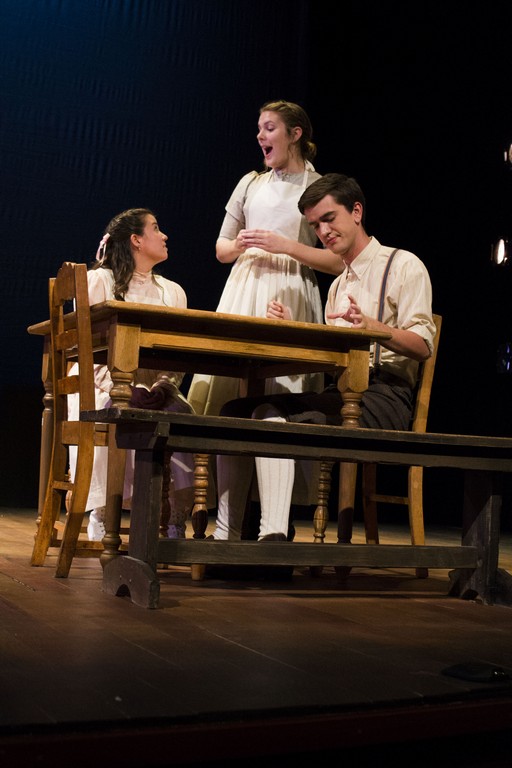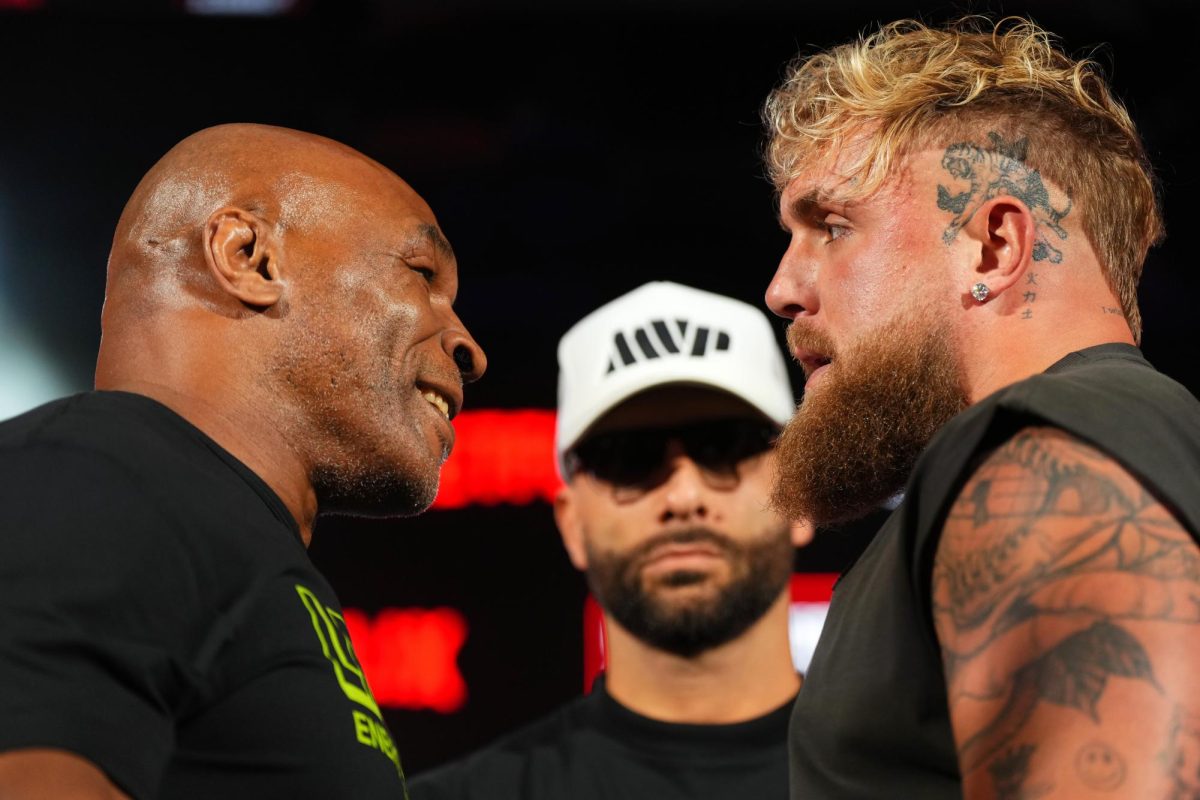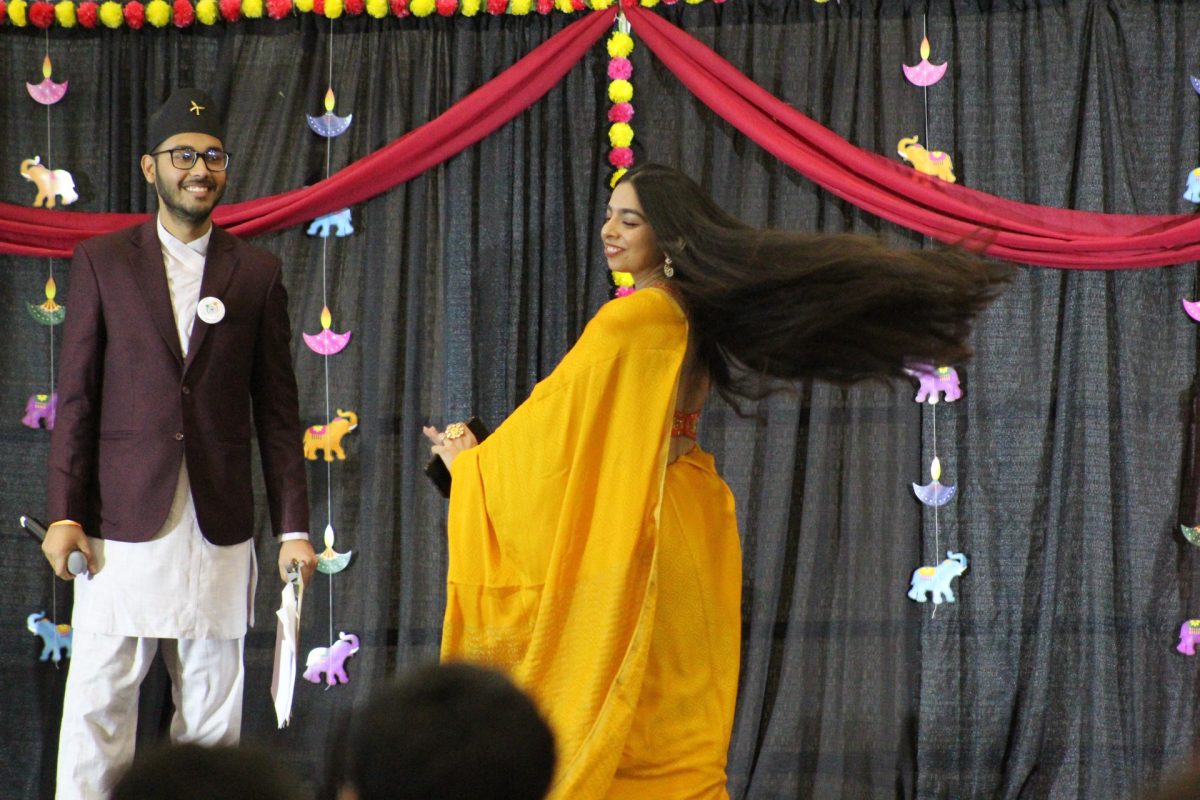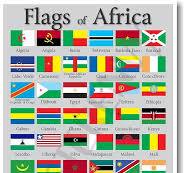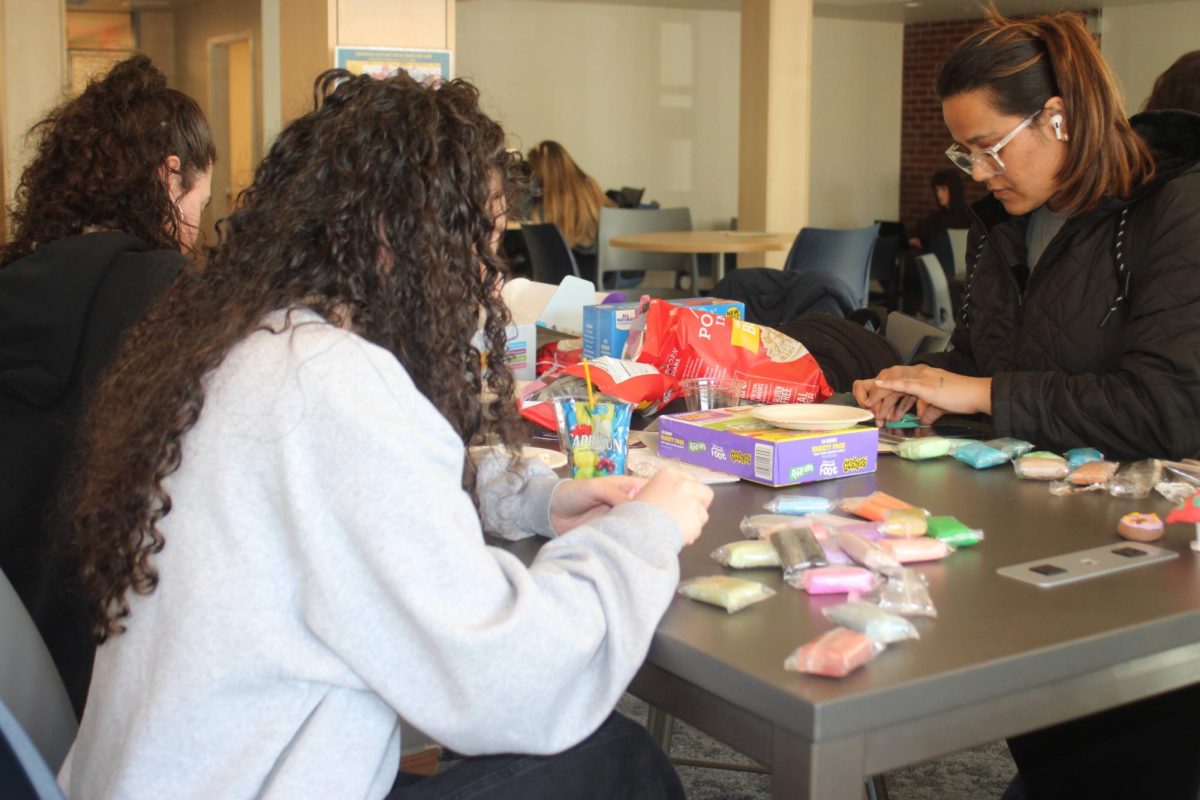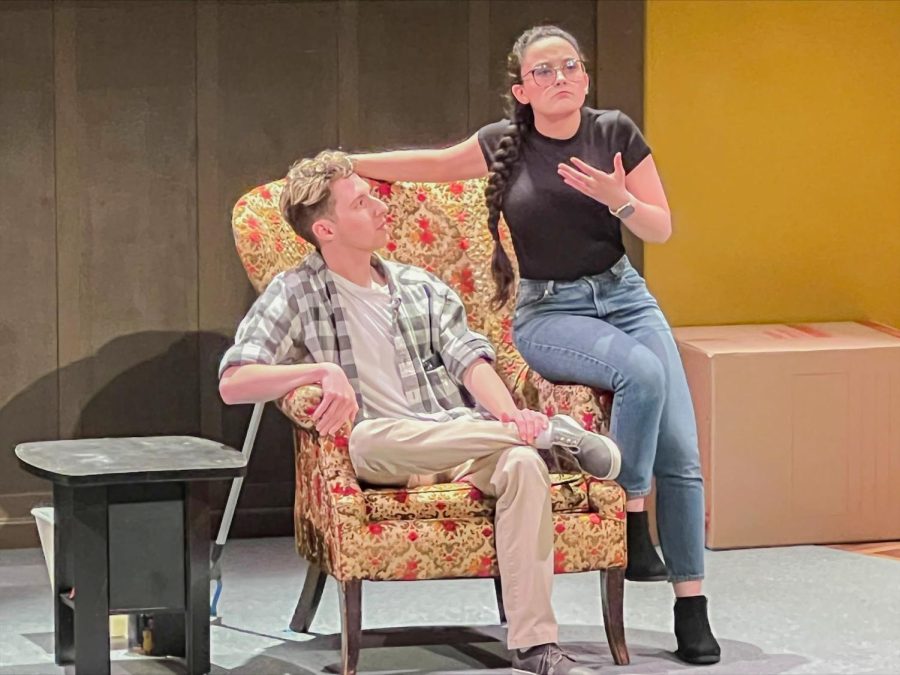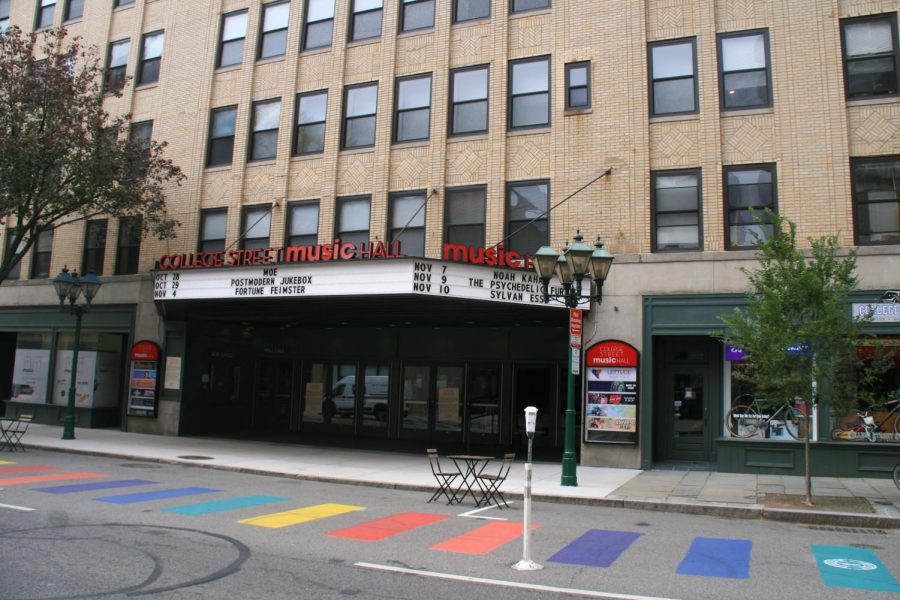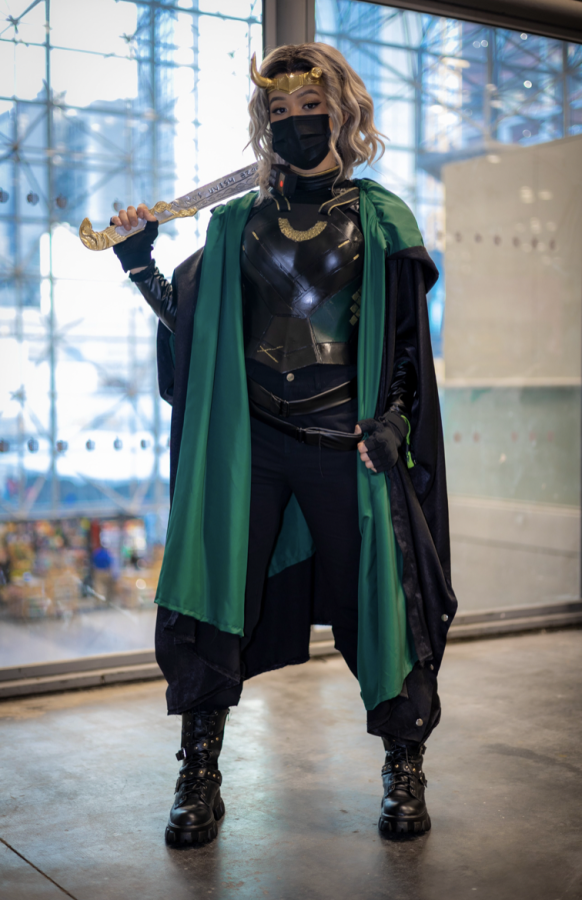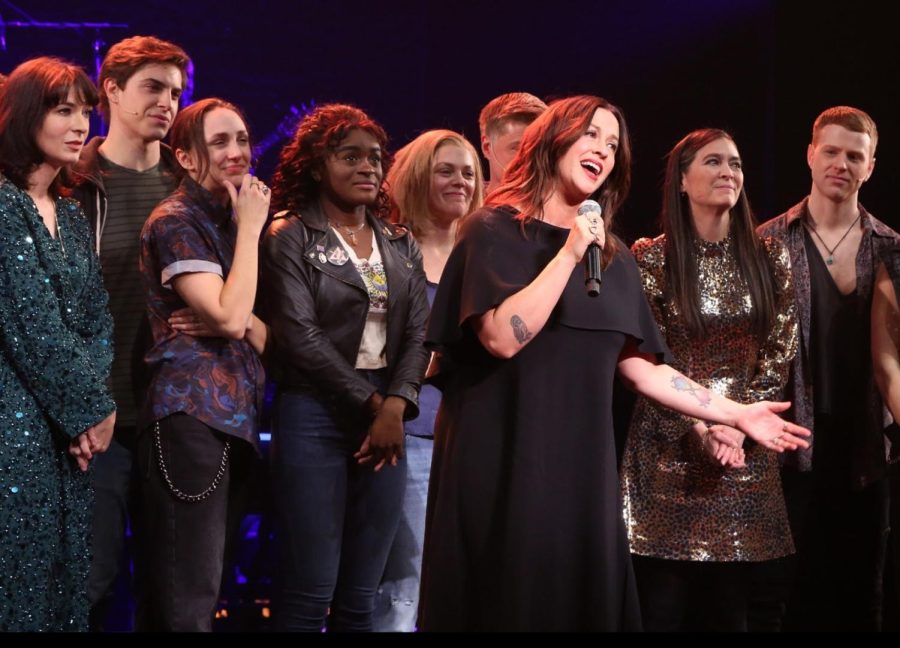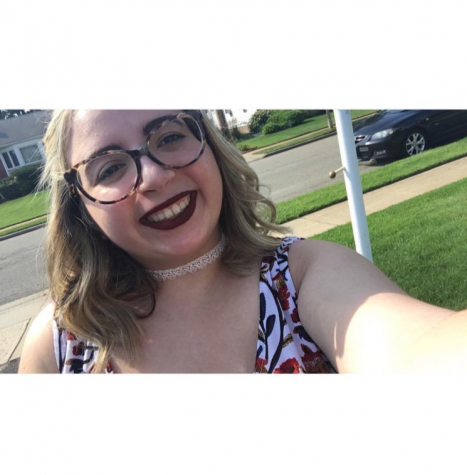One of the great American plays, Thornton Wilder’s Our Town, opened at the University
of New Haven on November 16. The theater program put on the production, directed by
a theater professor at the university, Jonathan Yukich.
Though the play was written and first produced in 1938, the text has held up and in
some ways, still feels relevant for audiences watching in 2016 – part of that is due to the
metatheatricality of Wilder’s writing, but more on that later.
The show’s script calls for a very minimalist stage design – two tables with three chairs
at each, and two trellises. Everything else had to be mimed: mothers cooking breakfast,
the children doing homework at their windows and Howie Newsome delivering milk to
the Gibbs and Webb households every morning. The actors had to set the scene using
only their hands to represent what their characters were doing. The lack of props didn’t
take much away from the show, it made the dialogue front and center. All of the
audiences’ attention was pulled to it, but it also wasn’t hard to figure out what they were
miming.
The combination of the acting, sound design and direction made up for the non-existent
props. It was still 100% clear what each character was doing at any given moment.
The metatheatricality is a running theme in Our Town. The show’s main figure, the
Stage Manager, played by Zach Fontanez, exists on stage in 2016, not 1901, 1903 and
1913, when the action is taking place. In his first monologue, he states that the audience
is watching a production of Our Town, directed by Yukich, in Bucknall Theater. The
fourth wall is broken, and seems to stay broken whenever the Stage Manager addresses
the audience, or the actors on stage. The Stage Manager is the one who sets up the time
each act takes place in. He is also there to clue the audience in on occurrences that
happen off stage, such as the eventual deaths of Mr. and Mrs. Gibbs. He sets the scene,
and in a way, he’s like a Grover’s Corners tour guide. Fontanez was a great Stage
Manager.
As a whole, the cast seemed to have completely immersed themselves in the roles they
were playing. In such a well-known and well-loved play, it is important to understand
the characters, and this group of actors, all U.N.H. students, did.
“These characters have sprung to life with this cast, and they’ve each taught me
something new about life and myself with every performance,” said Kate D’Alessandro, a
senior who was a member of the company’s choir.
Though the show itself is 78 years old and the “slice of life” element of the play may
seem outdated (specifically instances like the milkman hand-delivering milk to every
home in the morning, for example), at it’s core Our Town has managed to stay relevant
through the themes it presents. All elements of this play could be modernized: we all
know a George Gibbs, a popular athlete that all the girls lust for. The show’s third act,
known as Death and Dying, presents a situation that would be the same for anyone –
eternity. When Emily Webb, now Emily Gibbs after marrying George late in act two,
dies during childbirth, she enters eternity. It’s a concept she can’t understand, and
doesn’t understand until the Stage Manager allows her to revisit a single day in her life.
Erica Quaedvlieg, who played Emily, captured all of the emotions so well, confusion,
excitement, and eventually the sadness that the show ends on.
Emily learns, when looking back on her life, that her family didn’t appreciate all the
moments of life they had. That may be what Wilder wanted viewers or readers of his
play to take away. That is the message from the show that continues to transcend
decades. People are still living and dying, time is still carrying on. Life happens so
quickly and we aren’t even appreciating it as it passes us by.
When U.N.H’s production ended, audiences left the theater and walked into a lobby that
had transformed during the performance.
In the show’s first act, the Stage Manager tells the audience about the items being placed
in the cornerstone of the new bank in Grover’s Corners. An insert in the program asked
the audience member what they would place in a cornerstone. The inserts were collected
and answers were compiled. When the show ended, a scrolling projection listing all of
the answers from the audience, cast and crew played over Bucknall Theater’s exit. The
answers ranged from iPhones to more personal things like family recipes. It was an
interesting look at what the people in attendance found to be important to them.
One of the biggest takeaways from Our Town and one that should leave an impact with
viewers of the show is that Our Town is not just Grover’s Corners, New Hampshire. Our
Town is your town, and my town, and West Haven, Connecticut. It’s all of Our Town.



